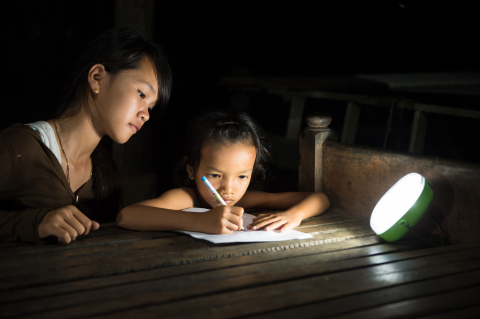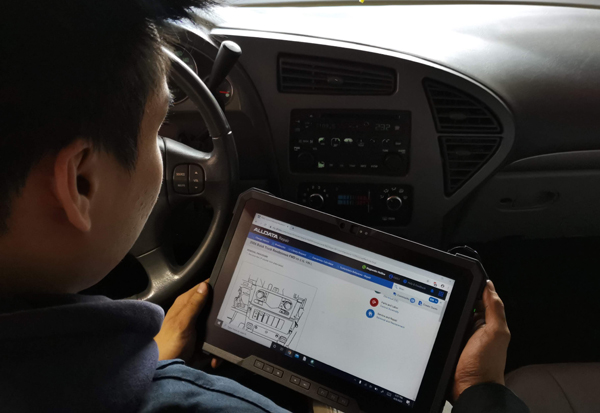Panasonic donates 50,000 Solar Lanterns under Its "100 Thousand Solar Lanterns Project"
 Monday, March 28, 2016 at 8:42AM
Monday, March 28, 2016 at 8:42AM 
More than 1.2 billion people* worldwide still live without access to electricity. Lack of electric lighting severely impacts health, education, income-generation and safety at nighttime.
Panasonic Corporation's "100 Thousand Solar Lanterns Project" has passed its halfway mark with the cumulative number of solar lanterns donated exceeding 50,000 on March 10, 2016. This project began in February 2013 with a donation of 3,000 units to Myanmar, followed by donations to other areas in Asia and Africa without access to electricity.
The number of solar lanterns donated was 10,000 for 3 countries in FY2013, 14,114 for 10 countries in FY2014 and 20,364 for 11 countries in FY2015. And in FY2016, Panasonic continued to donate solar lanterns, and on March 10, 2016, 702 units were donated to Yen Bai province in Vietnam. With this, the sum total of solar lanterns donated exceeded 50,000. After this, in mid-March 2016, Panasonic donated 2,400 units to Cambodia and 760 units to Bangladesh. Furthermore, donations to Indonesia, India, and the Democratic Republic of Congo will be made by the end of March 2016, bringing the sum total to more than 60,000 units.
The "100 Thousand Solar Lanterns Project" is one of Panasonic's corporate citizenship activities (social contribution activities) that utilize "products" it manufactures. More than 1.2 billion people* worldwide still live without access to electricity. Lack of electric lighting severely impacts health, education, income-generation and safety at nighttime. Panasonic hopes to help alleviate the social challenges people in developing and emerging countries living off-grid are facing, and to bring positive change to their lives by donating small lighting devices powered by solar energy. Panasonic has also donated solar lanterns to give relief to communities stricken by large-scale natural disasters or by epidemics.





















Reader Comments